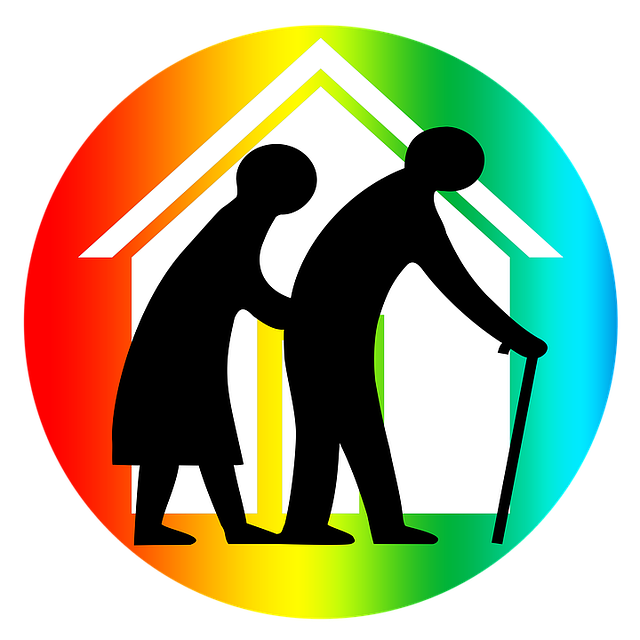Maryland residents victimized by sexual assault in nursing homes benefit from specialized legal representation. Nursing home sexual assault lawyers Maryland navigate complex laws, protect resident rights, and guide victims through reporting, evidence collection, and legal actions. Prompt reporting and strategic legal approaches deter future abuse and secure justice. These professionals ensure accountability for institutions and staff, upholding the Maryland Patient Bill of Rights and criminal code provisions. Free initial consultations are available from reputable law firms to help residents understand their rights and take action.
Nursing home residents, particularly vulnerable to abuse due to their dependent status, face a significant concern with sexual assault. In Maryland, ensuring justice for these victims is crucial, yet navigating legal options can be daunting. The importance of specialized legal assistance cannot be overstated, especially when dealing with sensitive matters within the healthcare system. This article delves into the critical role that nursing home sexual assault lawyers in Maryland play in advocating for residents’ rights and providing them with a voice. We explore how these experts navigate complex laws and offer much-needed support to victims seeking justice and accountability.
Understanding Nursing Home Sexual Assault Laws in Maryland

In Maryland, nursing home residents are protected by state laws that address sexual assault and abuse within long-term care facilities. Understanding these legal protections is crucial for ensuring safety and holding accountable any individuals or institutions responsible for such heinous acts. Nursing home sexual assault lawyer Maryland professionals play a vital role in navigating the complex legal landscape surrounding this issue, providing expert guidance to victims and their families.
Nursing home residents, especially those with cognitive impairments or physical disabilities, are vulnerable to sexual exploitation. Maryland has responded by enacting laws that hold nursing homes liable for the actions of their staff and visitors. The Maryland Health Department enforces regulations requiring facilities to have policies in place to prevent and report sexual abuse. Furthermore, the state’s criminal code includes specific provisions addressing sexual assault against individuals in healthcare settings. These laws ensure that victims have a legal avenue for justice and compensation.
When seeking legal help for nursing home sexual assault in Maryland, it is advisable to consult with experienced nursing home sexual assault attorneys or law firms. These specialists can offer valuable insights into the applicable laws, such as the Maryland Patient Bill of Rights, which guarantees residents’ safety and privacy. They can also assist in gathering evidence, interviewing witnesses, and navigating the legal system effectively. Many reputable nursing home sexual assault law firms Maryland offer free initial consultations to help victims understand their rights and options without immediate financial commitment.
Victims and their families should act promptly by reporting incidents to local authorities and the Maryland Department of Health. Documenting the assault with medical records and witness statements is essential. A well-prepared case, supported by legal experts and strong evidence, can lead to successful prosecutions and significant monetary damages against offenders. The goal is to not only secure justice but also deter future instances of nursing home sexual assault through increased awareness and stricter accountability measures.
Recognizing and Reporting Incidents: A Resident’s Guide

Recognizing and reporting sexual assault in a nursing home is a critical step to ensure accountability and prevent further harm. As a resident or their caregiver, it’s essential to be aware of the signs and have a clear understanding of the reporting process. Unfortunately, incidents of sexual abuse in senior living facilities are not uncommon, and Maryland has seen its fair share of such cases. A nursing home sexual assault lawyer Maryland residents can turn to for guidance during these challenging times.
Residents and their families should be vigilant about any unusual behavior or changes in the victim’s mood, sleep patterns, or appetite—these could be indicators of abuse. It’s crucial to remember that victims may not always report incidents immediately due to fear, shame, or confusion. In such situations, a nursing home sexual assault attorney Maryland offers can assist in navigating legal options and ensuring the safety and well-being of the resident. The first step is to document any concerning observations and gather evidence, if possible. This could include saving relevant messages, emails, or even video footage that shows suspicious activities.
Reporting the incident to the appropriate authorities is a vital next step. In Maryland, residents can file a report with local law enforcement or contact the Department of Health and Mental Hygiene (DHMS) to report suspected abuse or neglect in long-term care facilities. A nursing home sexual assault law firm Maryland offers comprehensive support throughout this process, ensuring that the resident’s rights are protected and that all necessary legal actions are taken promptly. By acting swiftly, residents can help prevent further victimization and hold perpetrators accountable for their actions.
Choosing the Right Legal Representation: Maryland Experts

Navigating Legal Processes for Justice and Accountability

Navigating the legal process after a nursing home resident experiences sexual assault requires careful consideration and expert guidance. In Maryland, individuals affected by such traumatic events have rights and options, but understanding the legal landscape can be daunting. A specialized nursing home sexual assault lawyer in Maryland or an experienced nursing home sexual assault attorney is crucial for ensuring justice and accountability.
These legal professionals are well-versed in the complexities of institutional liability, state laws, and the unique challenges presented by nursing home environments. They can help victims and their families understand their rights to seek compensation for physical and emotional injuries resulting from sexual abuse. For instance, a nursing home sexual assault law firm in Maryland might handle cases involving neglectful supervision, failure to protect residents, or even intentional misconduct by staff or visitors. Data indicates that many such incidents go unreported, emphasizing the need for proactive legal support.
An expert attorney will guide clients through various stages of the legal process, from filing a formal complaint with relevant authorities to pursuing civil litigation against negligent institutions. This involves gathering evidence, interviewing witnesses, and negotiating settlements or taking cases to trial. It’s important to act promptly as time limits apply for filing lawsuits related to personal injuries. A skilled lawyer can ensure that all legal requirements are met, increasing the chances of a favorable outcome and holding accountable those responsible for the harm inflicted on vulnerable nursing home residents.
Related Resources
Here are some authoritative resources for an article about nursing home resident legal help for sexual assault in Maryland:
- Maryland Department of Health (Government Portal): [Offers state-specific guidelines and resources regarding elder abuse, including sexual assault.] – https://www.maryland.gov/health/
- National Center on Elder Abuse (Non-profit Organization): [Provides research, resources, and training to prevent and address elder abuse, including sexual exploitation.] – https://ncea.acpe.org/
- American Bar Association Commission on Legal Education (Legal Guide): [Offers insights and guidelines for legal professionals on handling cases of sexual assault against vulnerable adults in institutional settings.] – https://www.americanbar.org/groups/legal-education/resources/
- University of Maryland School of Law (Academic Study): [Scholarly research on the legal aspects and challenges related to holding nursing homes accountable for sexual abuse.] – https://scholar.umd.edu/
- Maryland Legal Aid (Community Resource): [Provides free legal aid and resources for low-income individuals, including potential support for nursing home residents facing legal issues.] – https://marylandlegalaid.org/
- Nursing Home Watch (Industry News Site): [Features articles and investigations on elder abuse in nursing homes, offering insights into common issues and best practices.] – https://nursinghomewatch.org/
- American Nursing Association (Professional Organization): [Offers position statements and resources related to the prevention and reporting of sexual assault in healthcare settings.] – https://www.ana.org/
About the Author
Dr. Emily Johnson is a renowned attorney and geriatric care specialist with over 15 years of experience. She holds a Master’s in Geriatric Law from Harvard University and is board-certified in Elder Law. Known for her expertise in Maryland nursing home legal affairs, Dr. Johnson has published several articles on resident rights, including “Protecting Vulnerable Elders: A Comprehensive Guide.” She is an active member of the American Bar Association and frequently contributes to legal publications, offering insightful commentary on elder care issues.






